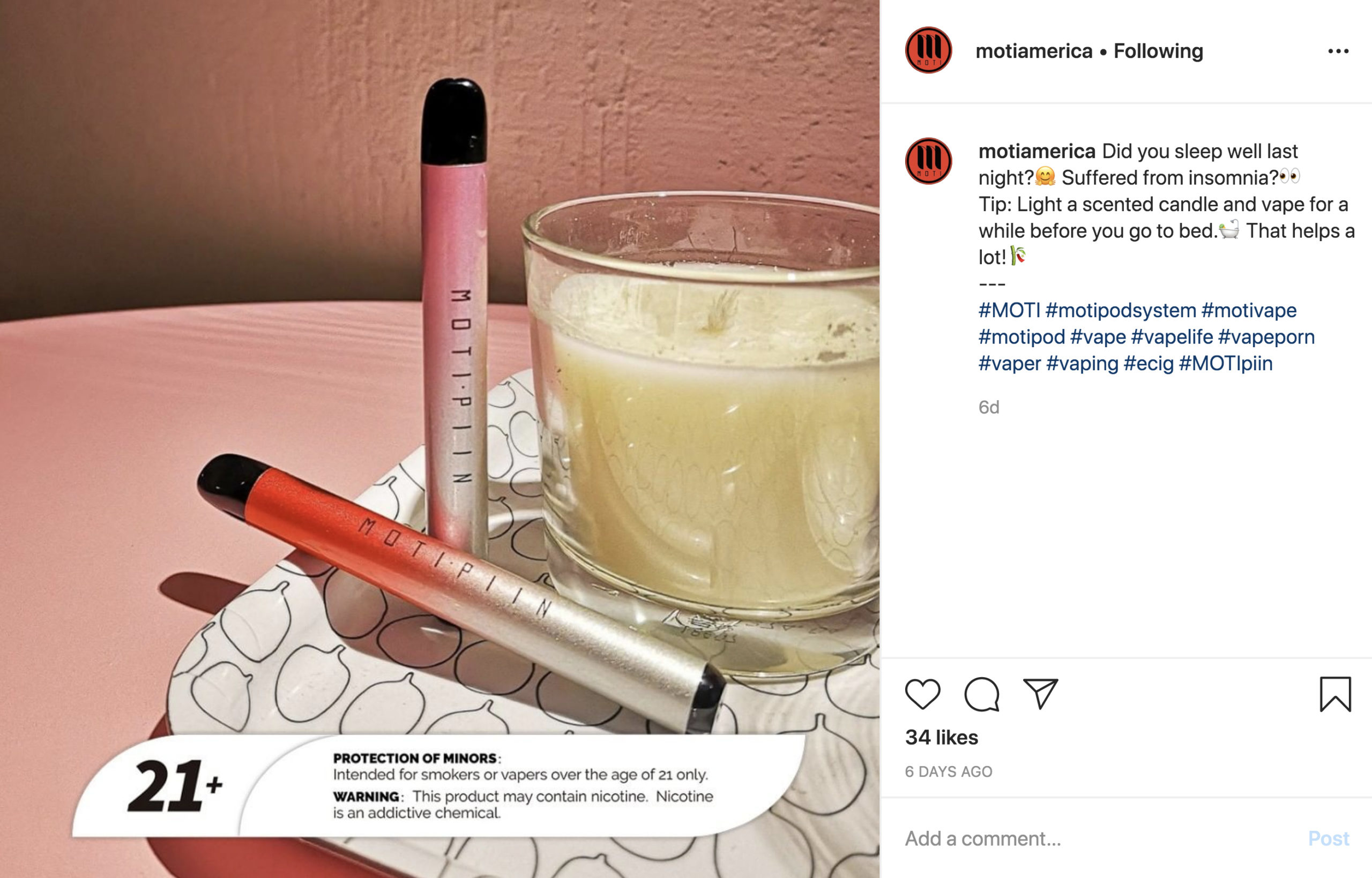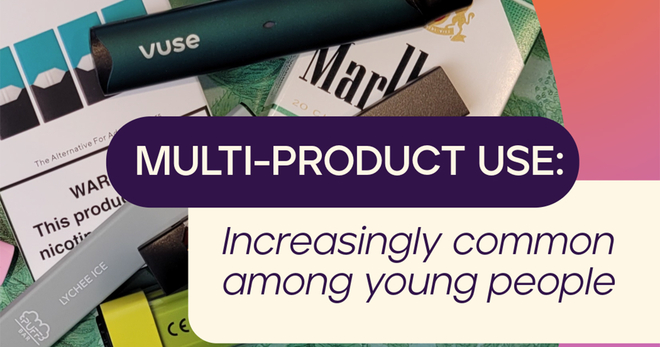How the tobacco industry markets vaping nicotine as stress relief
Some e-cigarette manufacturers have used a similar strategy to market e-cigarettes that tobacco companies have used for decades to sell cigarettes: advertising them as stress relievers. The common misconception that nicotine relieves stress, anxiety, and depression may be rooted in the cycle of nicotine withdrawal. Irritability, anxiety, and feelings of depression are some of the symptoms of nicotine withdrawal, and using nicotine can relieve these symptoms temporarily.
truth’s latest campaign “Toxic Therapy from Your Vape” is exposing misconceptions about nicotine and stress, while sharing resources for quitting vaping and mental health on Solution Space, an interactive website that offers tips and tricks for quitting and coping with stress. Some ideas include: breathing exercises from Breathwrk, taking time away from your phone, swapping your vape for a lollipop or sour candy when you have a craving, and journaling with Cope Notes, a daily texting program that offers tips for dealing with anxiety.
Tobacco companies also have a long history of promoting cigarettes as stress relievers or a way to fuel “healthy nerves.” Some vape manufacturers have used this tactic to advertise e-cigarettes, depicting them alongside relaxing imagery and encouragements such as “take time to yourself” and “find your escape.” These examples and many more have been documented by researchers at Stanford University’s Research into the Impact of Tobacco Advertising.
blu, one of the first e-cigarette brands on the market, posted on Instagram an image of their product sticking out of the sand on a sunny day. The caption reads, “Take some time to yourself, you deserve it. #myblu.” Similarly, the e-cigarette brand JUUL tried to appeal to the holiday mindset by posting a picture on Instagram with the caption “@arwhitworth shared this vacation #JUULmoment with us! Where do you travel with #JUUL? #juulvapor.”
Associating a relaxing moment with vaping nicotine can mislead the public to believe that nicotine use leads to mental well-being, stress relief, relaxation, and pleasure. Research by Truth Initiative shows that, during the pandemic in 2021, a large majority of young e-cigarette users started using the products to lessen feelings of stress, anxiety, or depression, and many continue vaping to cope with these feelings.
- 81% who had used e-cigarettes said they started vaping to decrease stress, anxiety, or depression, according to an August 2021 survey of 1,000 people between ages 15 and 24.
- More than half of vapers use e-cigarettes to cope: 50.3% of frequent vapers — those who vaped 20 or more days in the past month — reported that they need to vape to cope with stress or anxiety, according to Truth Initiative continuous tracking data from June 2021.
- In a separate study, when respondents were asked about the advantages of e-cigarette use, one of the most frequently listed advantages was “relaxation and stress relief.”
Quitting nicotine can benefit youth mental health in the long-term
As quitting smoking is linked with lower levels of anxiety, depression, and stress, there is emerging evidence of a link between quitting vaping and improvements in mental health symptoms. According to a Truth Initiative survey, 47% of young people who quit vaping feel more in control than when they were vaping, and 90% feel less stressed, anxious or depressed.
This Is Quitting – the evidence-based, first-of-its-kind, free quit vaping program that is the largest in the country and the only one that has been validated by peer-reviewed research – has become a resource for more than 560,000 young people seeking to break free from e-cigarette use. A randomized clinical trial found that young adults aged 18-24 who used This is Quitting had nearly 40% higher odds of quitting compared to a control group.
Results from another randomized clinical trial underscored that This is Quitting is not only successful in helping young people quit vaping, but also in ensuring that they don’t later use combustible tobacco products in place of e-cigarettes. To access This Is Quitting and receive immediate help, young people can text “DITCHVAPE” to 88709.
As part of Breath of Stress Air 2.0, truth is continuing its partnership with the app Breathwrk to incorporate breathing exercises into This is Quitting to help with nicotine cravings that cause stress and anxiety. This is Quitting users can access six months of free membership to Breathwrk Pro, including access to custom breaths to help on their quit journey, by texting “BREATHE” to 88709.
Parents of young people who vape can receive support at BecomeAnEX.org. Free mental health resources from partners of truth can also be found at thetruth.com/article/mental-health-resources.
More in emerging tobacco products
Want support quitting? Join EX Program
By clicking JOIN, you agree to the Terms, Text Message Terms and Privacy Policy.
Msg&Data rates may apply; msgs are automated.






